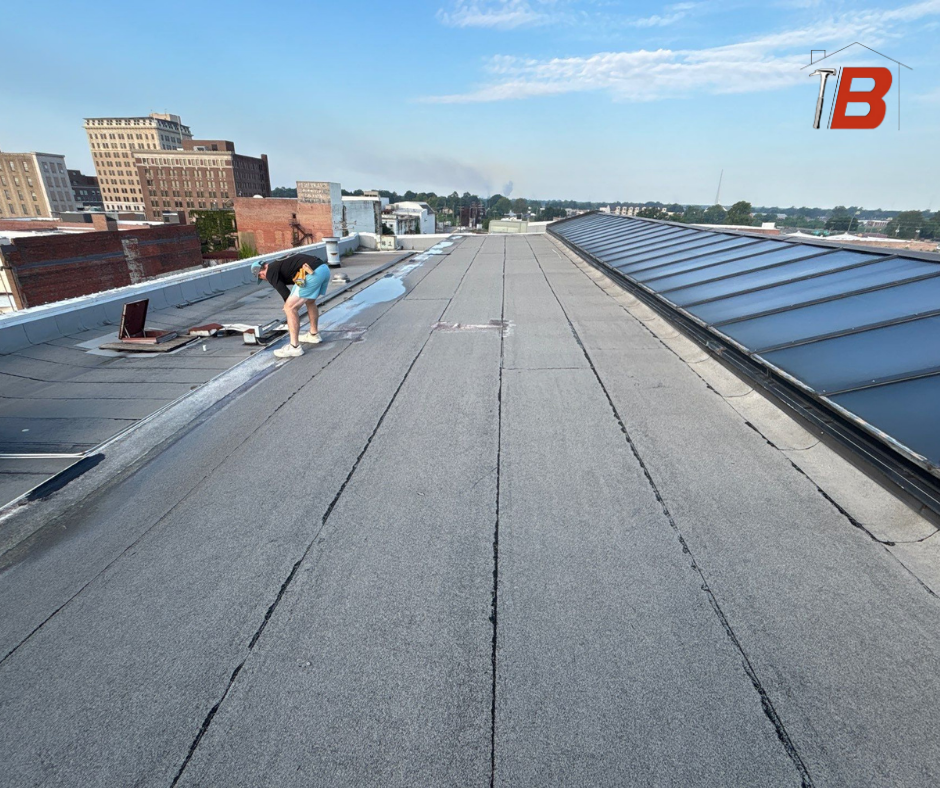Storms, hail, and high winds can do a number on your roof—often requiring thousands of dollars in repairs or even a full replacement. When this happens, most homeowners turn to their insurance for help. But there’s a growing trend among shady contractors: offering to “waive your deductible.” While this may seem like a helpful discount, it’s often illegal—and can result in serious consequences for both the contractor and the homeowner.
In this post, we’ll break down:
- What a roof insurance deductible is
- Why it’s required in every insurance policy
- The tactics some contractors use to “waive” it
- Why it’s illegal to skip paying your deductible
- How to recognize red flags
- What to look for in a trustworthy roofing contractor
What Is a Roof Insurance Deductible?
A deductible is the amount a homeowner agrees to pay out-of-pocket before insurance coverage kicks in. It’s included in nearly every homeowners insurance policy and applies to claims for damage caused by hail, wind, storms, and other perils.
There are two common types:
- Flat Deductible – A fixed amount, often $500 to $2,500.
- Percentage-Based Deductible – Based on a percentage (usually 1–5%) of the home’s insured value. For example, if your home is insured for $300,000 and you have a 2% deductible, you’ll pay $6,000.
Why it matters: You are legally and contractually required to pay your deductible for the insurance company to cover the rest of the repair costs.

Why Insurance Deductibles Exist
Insurance isn’t designed to cover every small issue. Deductibles are in place to:
- Encourage responsible claims – They reduce the number of small or unnecessary claims.
- Lower insurance costs – Higher deductibles often lead to lower monthly premiums.
- Share financial responsibility – Insurance companies expect homeowners to carry part of the cost.
Skipping the deductible undermines the foundation of the insurance system—and that’s exactly why the law takes it seriously.
How Contractors Try to Waive Deductibles (and Why It’s Fraud)
Some contractors promise “free roofs” or say they’ll “cover the deductible” to get your business after a storm. Here are common tactics they use:
1. Inflating the Estimate
They increase the total cost of the job to include your deductible, so it looks like you paid it—even though you didn’t.
2. Fake or Altered Invoices
They submit false documents to your insurance company showing a higher amount billed than actually charged.
3. Rebates or Gift Cards
They offer cash back, pre-paid cards, or rebates after you “pay” the deductible—but return the money under the table.
4. Side Agreements
They create two versions of the invoice: one for you and one for the insurance provider. This is known as a dual invoice and is a clear act of fraud.
Bottom line: Any effort to hide, cover, or avoid paying your deductible is likely insurance fraud—whether you were aware of it or not.
What the Law Says: It’s Illegal
In many states, deductible waiving is explicitly illegal. Here’s what some states are doing to fight back:
- Texas: House Bill 2102 (2019) – Requires homeowners to pay their deductible and makes it illegal for contractors to “waive, absorb, or rebate” it. Violations can result in fines of up to $2,000 and jail time.
- Florida & Louisiana – Similar laws have been passed to protect insurance systems from abuse.
- Other States – Even if not named in law, deductible waiving can still be prosecuted under broader fraud statutes.
In these cases, both the contractor and the homeowner can be held liable.
Legal Consequences for Homeowners
Even if the contractor initiates the scheme, you can be held responsible if you knowingly participate.
Consequences may include:
- Denial of your insurance claim
- Voided policy or higher premiums
- Civil fines or lawsuits
- Criminal fraud charges (in extreme cases)
Insurance companies are increasingly auditing claims and invoices, and many are actively reporting fraud.
How to Protect Yourself
As a homeowner, you should never feel pressured to cut corners or participate in any form of fraud. Here are smart steps to avoid trouble:
✅ Understand Your Deductible
Know what type of deductible you have, how much it is, and whether it’s flat or percentage-based.
✅ Vet Your Contractor
Look for licensed, insured, and well-reviewed roofing companies. Avoid anyone who offers to “handle” your deductible.
✅ Ask Questions
If something sounds too good to be true, it probably is. Make sure everything is documented.
✅ Avoid Pressure Sales
Storm-chasers use scare tactics and urgency to push shady deals. Take your time and get multiple estimates.
✅ Request Copies of All Invoices
Insist on transparent, itemized invoices that match what’s submitted to your insurer.

What Ethical Roofing Companies Do Instead
The best roofing contractors operate with integrity and will:
- Clearly explain your deductible and what’s covered by insurance
- Help you understand your policy—without bending the rules
- Provide competitive pricing without manipulating insurance
- Offer financing options to help with upfront costs
- Work with your adjuster to ensure a fair claim—without fraud
They won’t make promises they can’t keep, and they’ll never ask you to break the law to save a few dollars.
Final Thoughts
Avoiding your deductible may seem like a shortcut to save money, but it’s a trap that can lead to denied claims, legal action, and even criminal charges. Paying your deductible is not optional—it’s a legal obligation tied to your insurance contract. The best way to protect your home and your wallet is to work with a licensed, ethical roofing contractor who operates transparently and within the law.
Why Homeowners Trust Brown’s Roofing
At Brown’s Roofing, we believe in doing things the right way—no shortcuts, no scams, and no shady promises. Our team is fully licensed and insured, and we’re here to walk you through the entire insurance claim process with honesty and integrity. From accurate estimates to high-quality workmanship, you can count on us to protect your home and your peace of mind.
